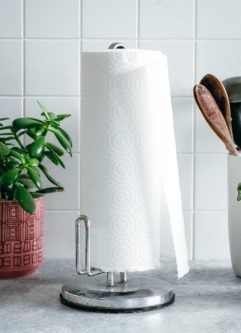Can you compost paper towels?
Wondering if paper towels can be composted? This ultimate guide to composting paper towels tells you when it’s okay to toss them in the compost bin (and when it’s not!), and provides some eco-friendly paper towel alternatives.
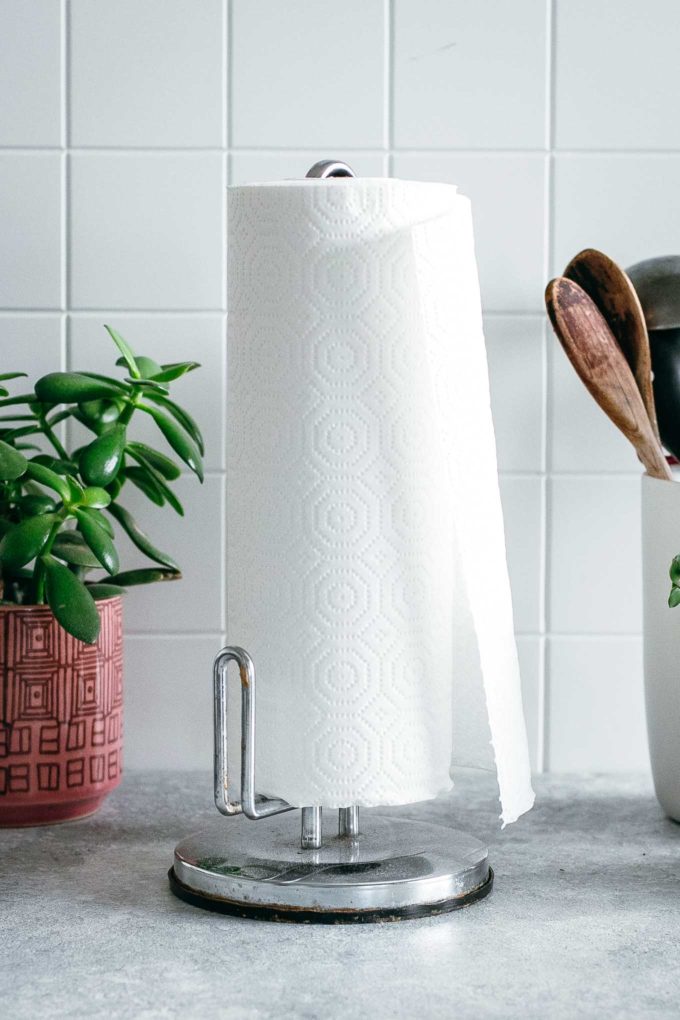
Want to Save This Recipe?
Enter your email & I’ll send it to your inbox. Plus, get new plant-based recipes in your inbox!
By submitting this form, you consent to receive emails from Fork in the Road.
Do you strive to be eco-friendly in the kitchen? Us too! You have to consider many factors when it comes to a sustainable kitchen, all the way down to the paper towels you use and whether or not you compost them. Before you toss your used paper towels in the compost bin, it’s important to know if they’re contaminated with ingredients that can’t be broken down.
Paper towels can be composted if they are free from grease, chemical residue, or heavy bacteria. Clean and unused paper towels are safe to compost, as well as paper towels used to clean surfaces, dishes, and to dry your hands.
To know if you can compost your paper towels, you should become familiar with how paper towels are made, how they decompose, and when to avoid adding them to the compost.
Ready to learn about whether you can throw paper towels in the compost bin? Let’s do it!
🧻 What Are Paper Towels?
Paper towels are absorbent, disposable towels made from paper. They soak up water, which is why many people use them for household cleaning tasks to dry up wet surfaces.
There are lots of different paper towel brands that design various paper towel products. Some are made with specific properties such as greater scrub strength, extra absorbency, or lighter weight.
While all paper towels are inherently compostable, what they are used for is ultimately what determines whether or not they can go in the compost bin. If you use paper towels to clean up water, plant-based foods, and/or dirt, they are safe to compost. On the other hand, paper towels covered in grease or cleaning products (even green cleaning products!) should not be composted.
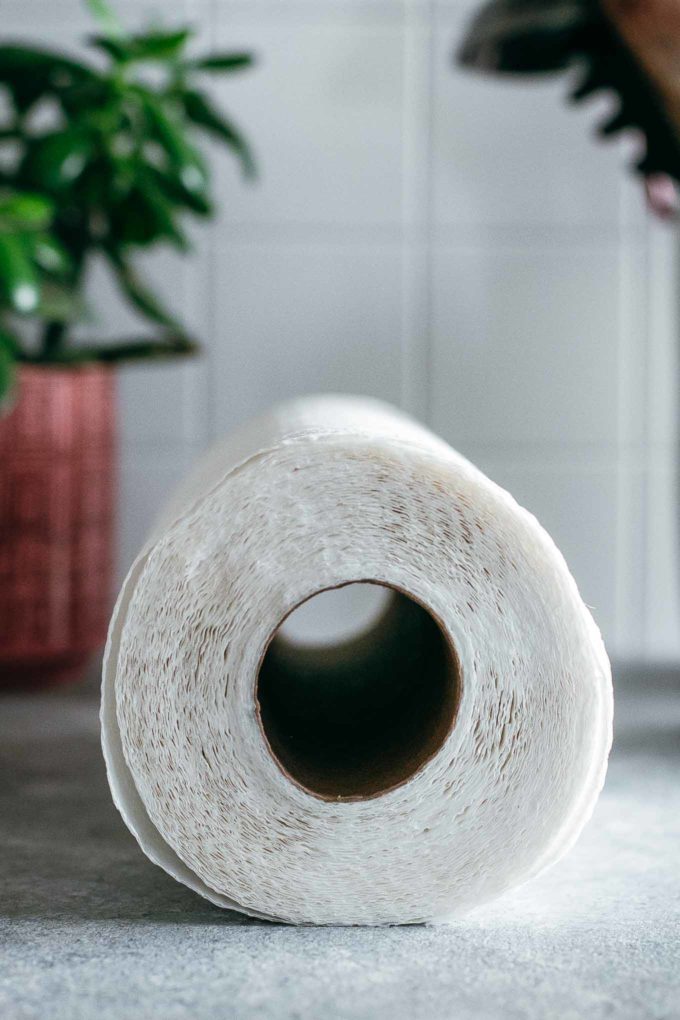
🌳 How paper towels are made
How paper towels are made is what makes them compostable. They are typically made from organic materials: water, wood, and pulp, which are able to decompose under most circumstances.
The steps to make paper towels include:
- Development of the paper material. The bark and fibers from softwood trees is used to make paper towels.
- Churning. After softwood tree bark is separated and chopped into tiny pieces, it is churned into a smooth pulp.
- Cleaning. The pulp goes through several cleaning and bleaching steps to remove any bacteria, contaminants, and particles.
- Pressing. After the pulp has been cleaned, it is then pressed into paper. However, it’s not pressed as hard as commercial paper, which is how paper towels get their soft, absorbent texture.
- Bounding. Using light and adhesives, the layers of ply are bound together carefully to create a paper towel sheet. Most paper towels are made from two sheets.
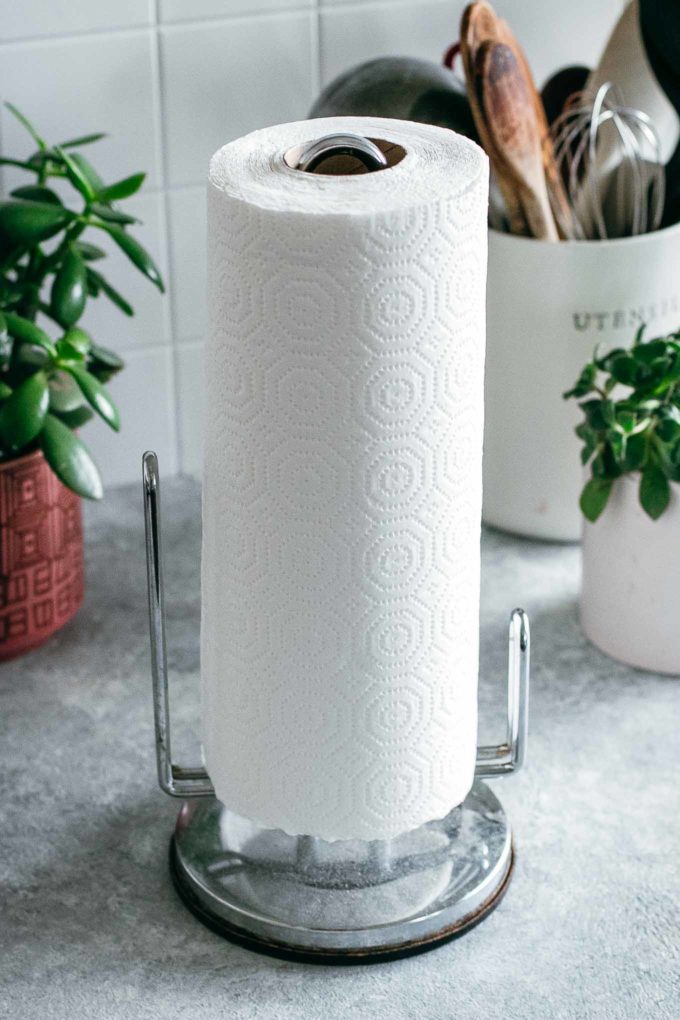
💦 Can you compost bleached paper towels?
In addition to churning the raw paper towel materials and cleaning and pressing the remaining pulp, most manufacturers also include a bleaching stage that removes the natural brown color and turns paper towels white.
White, or bleached, paper towels are compostable. However, bleaching adds chemicals to the manufacturing process that is unnecessary and could have detrimental effects on the environment. For this reason we recommend purchasing unbleached paper towels when necessary.
🌱 How Do Paper Towels Decompose In Compost?
Paper towels suitable for composting may take anywhere from 2 weeks to 45 days to decompose.
Through composting, the microbes and fibers from paper towels are neutralized and turned into mulch. The mulch can then be used to plant new flowers and trees. Talk about circle of life!
The speed at which paper towels decompose depends on a few different factors:
- How wet the paper towel is: Wet paper towels decompose in compost more quickly than dry paper towels. You can also accelerate the decomposition process by shredding, cutting, or tearing paper towels into small pieces before putting them in compost.
- Grease or chemicals: If paper towels are covered in grease or chemicals, they will take longer to decompose and could halt the process all together.
👉 BONUS! You can use paper towels as a substitute for leaves in compost, as long as they are free of grease or chemicals.
While paper towels are able to decompose in compost, we recommend trying to reduce your use of paper towels as much as possible. Paper towels are convenient, but replacing single-use items with reusable alternatives is key to building a sustainable kitchen (and it saves you money!).
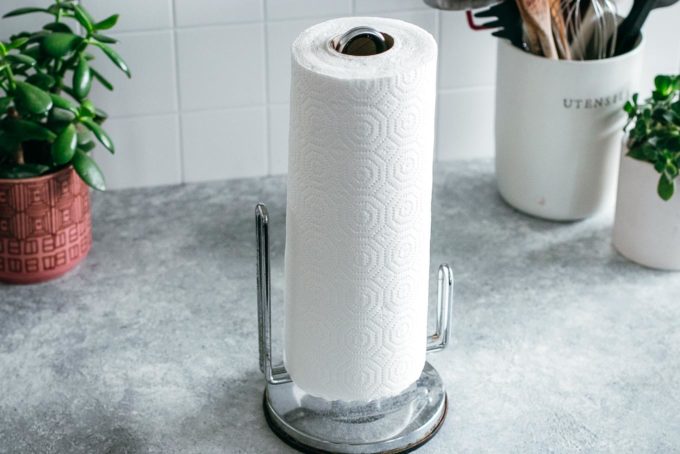
♻️ Eco-Friendly Alternatives to Paper Towels
If you’re ready to reduce your paper towel usage, there are plenty of eco-friendly alternatives on the market to choose from. Using these will prevent your compost bin from getting overloaded with paper towels.
- “Unpaper” towels. Made of bamboo and washable for more than 100 washes, these towels can help clean dirt, liquids, grime, bacteria, and grease in the kitchen.
- Swedish Dishcloths. Replacement for sponges that will limit your need for paper towels. Made of naturally biodegradable cellulose or renewable cotton and wood pulp.
- Cotton cloths. These cotton-based unpaper towels are handmade in the USA by a small family company (use code FORKINTHEROAD for 10% off!).
- Rip up old t-shirts or towels. No need to buy special towels, simply reuse older worn shorts, towels, or even baby burp cloths (super absorbent!).
All of these paper towel alternatives are reusable, which will not only help cut down on your paper towel usage, it will cut down your costs as well.
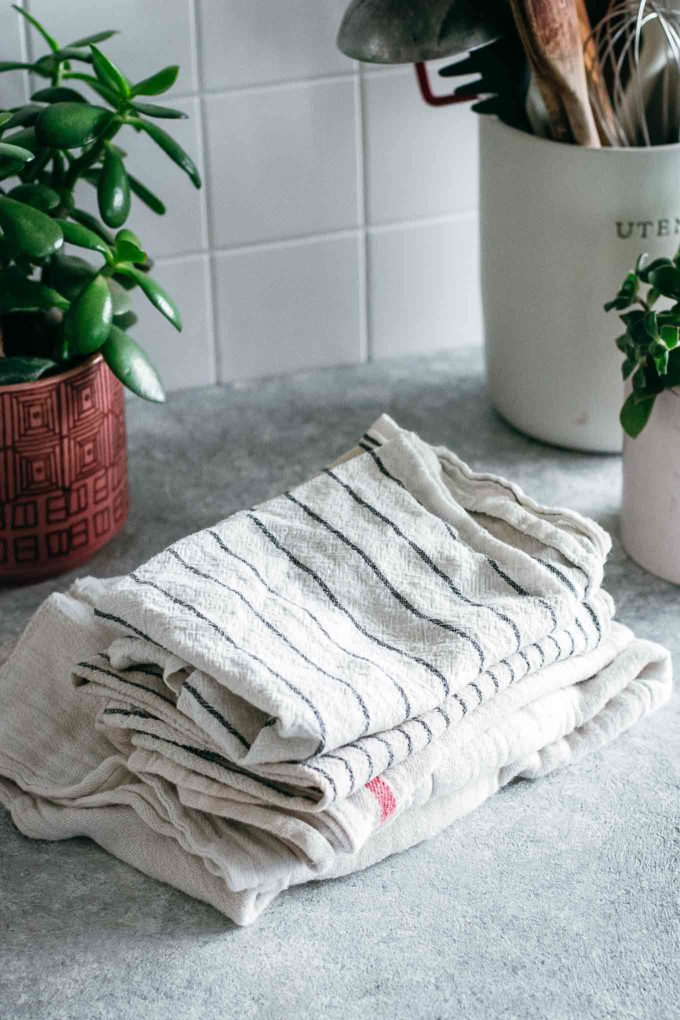
💚 More zero waste kitchen + composting tips
Want more tips for going green in the kitchen? We’ve got you covered with these sustainable kitchen guides:
- Zero Waste Kitchen Start Guide
- How to Clean Glass Jar Labels (Eco-Friendly Method)
- How to Remove Wine Bottles Labels Naturally
- Can You Compost Single-Use Tea Bags?
- Can You Compost Vegetables After They’ve Been Cooked?
- Everything You Need to Know About Composting Paper Bags
- Can you compost a whole pumpkin?
- Are Silicone Baking Mats More Sustainable Than Parchment Paper?
♻️ Want more inspiration for going green in the kitchen? Join the Green Living Community for plant-based recipes, sustainable kitchen hacks, and get our FREE guide to meal planning to reduce food waste!

